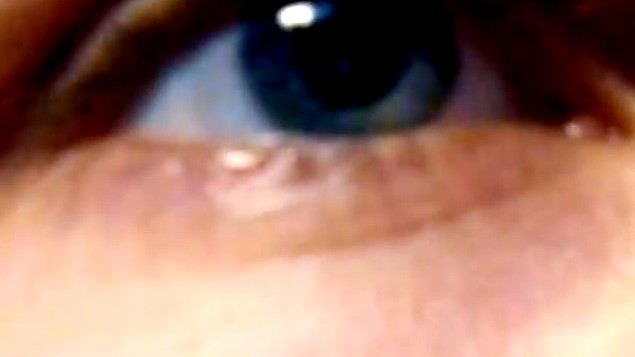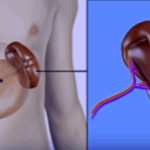An eye twitch, also known as myokymia is a recurring, involuntary spasm occurring in the muscles of the eyelid. Most of the eye twitches occur in the upper lid, however, they can also occur in the lower lids. In most people these eyelid muscle spasms are pretty mild and they feel like a person is having a gentle tug on their lid. Sometimes, the spasms may be quite strong forcing the eyelids to close completely. When this happens, it is called blepharospasm. Eyelid twitches are not predictable, they can occur anytime and after every few seconds, at least for about a minute or so. The spasms can be on and off usually lasting for several days before you get into a period where you don’t experience them for weeks or even months.
Although eyelid twitches do not cause harm and they are painless, they can be quite bothersome. A majority of the spasms involving the eyelid muscles will resolve on their own, without needing treatment. That said, there are rare cases where having eyelid spasms could indicate an early warning sign of a more serious condition such as a chronic movement disorder. This may be so if the spasms are particularly being accompanied by uncontrollable movements or other facial twitches.
Eyelid twitches can happen to anyone and at any time. Usually, the problem begins when the bottom lid of your one eye seems to act independently of the other part of the eye. The twitches may so feel so powerful such that you think the people around you may be noticing them, however, when you look in your mirror, you find that the movement are actually so subtle that people cannot take note of them occurring. If you have a prolonged period of eyelid twitches, it is important that you consider speaking to an ophthalmologist or a doctor.

Causes of Bottom Eyelid Twitches
It is important to understand that eyelid spasms whether causing twitches on the lower eyelid or upper eyelid, they can occur without there being any identifiable cause. Because eyelid twitching rarely denotes a serious problem, in most cases, the cause is not investigated. That said, bottom eyelid twitching may occur or may be made worse by the following:
- Fatigue
- Stress
- Eye irritation
- Lack of sleep
- Eyelid strain
- Physical exertion
- Use of caffeine, tobacco, or alcohol
- Stress
- Medication side effects
- Nutritional imbalances
- Allergies
- Dry eye syndrome
Tiredness: Depriving yourself of adequate, quality sleep may cause eye twitching. You may want to reduce eye twitches by ensuring that you have regular sleep. Stressful events can impact on your pattern of sleeping making you not have quality sleep. The series of late nights may be causing the eyelid twitching you are experiencing. If you have a condition like insomnia and you find that you are beginning to experience eye twitching, you can talk to a doctor. He or she will help you get quality sleep and reduce the episodes of twitches.
Eye strain: You may also experience eye twitches if your vision and eyes are being stressed. Think of it this way, if you want to get new eyeglasses or let’s say new contact lenses, it means that you are straining your eyes. It is likely that you will have eyelid twitching symptoms because the eyes are trying to work hard to maintain vision. In people who use computers for extended hours, they may also experience such twitches. A similar thing may happen with people you regularly use their smartphones and tablets. These devices tend to cause straining on the eyes. So, if you need a new eyeglass prescription, you should see an optician to get one. If you work with computers, you might want to get specific glasses that are designed to help lessen the strain on eyes.
Alcohol and caffeine: Studies conducted to find out the effects of substances like alcohol and caffeine on the body have indicated that these substances can contribute to eye twitching. Caffeine may be found in coffee, tea, fizzy drinks, and energy drinks. You may be having an increased intake of caffeine without knowing if you consume these beverages regularly. When you cut back on these stimulants, or consider taking decaffeinated drinks, you may see changes in your health including your sleeping patterns. This way, you may reduce your eyelid twitching episodes.
Nutritional deficiency: In people who have eye twitches, they may be having nutritional deficiencies. For example, lack of magnesium may be associated with the twitches. While there is no scientific evidence suggesting that lack of nutrients causes eye twitching, a change in diet may help with your twitching. You may want to discuss your dietary requirements with a doctor or nutritionist to see if the situation improves.
Allergies: People who have allergies may experience itchy, swollen, watery, or dry eyes. When you rub the eyes when you have allergies, histamines may be released into the eyelids as well as the tears. Histamines may contribute to twitching. While you may take antihistamines, they too can cause dryness of the eyes, which is also a problem likely to result in twitching.
How to Stop Eyelid Twitches
There are various ways you can prevent or stop eyelid twitches and they include having some restorative sleep, indulging in stress-reducing activities, and cutting back on caffeine. Moisturizing the eyes if they are dry or irritated may also help reduce eyelid spasms. Talk to an ophthalmologist in case your eyelid twitching is becoming persistent.
People who have eyelid muscle spasms that are chronic may be suffering from benign essential blepharospasm. This condition is known to cause uncontrollable blinking or winking, and mostly affects both eyes. The exact cause of the condition isn’t well known, however, the spasms may worsen if you have stress, dry eyes, or if you smoke. Conjunctivitis and inflammation of eyelids may also worsen the condition. About 50,000 Americans are said to have benign essential blepharospasm, according to Genetics Home Reference. Treatment for benign essential blepharospasm may involve having shots of Botox. Surgery may be done to remove the muscles or nerves in your eyelids. This helps in treating severe form of benign essential blepharospasm.


Thanks for these tips. One thing I additionally believe is credit cards giving a 0 monthly interest often attract consumers together with zero monthly interest, instant authorization and easy over-the-internet balance transfers, however beware of the number one factor that will certainly void your current 0 easy street annual percentage rate and throw one out into the terrible house fast.